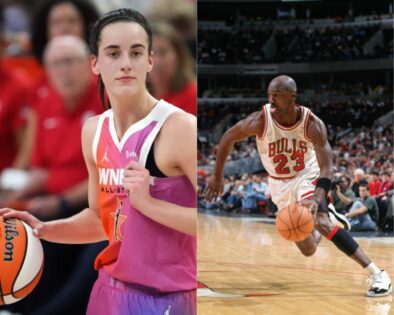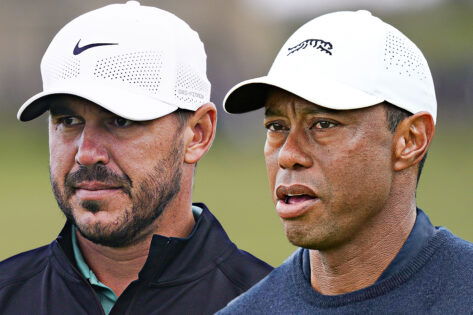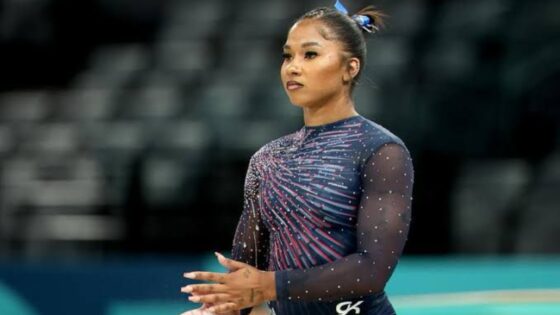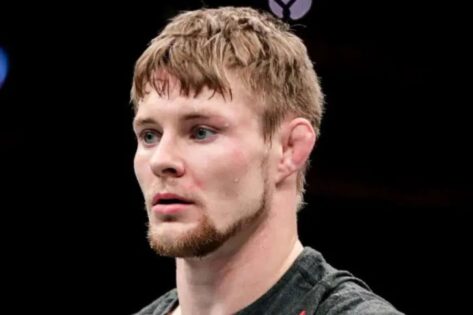Caitlin Clark’s rise has been like no sportsperson has ever seen. It all started while she was in Iowa and burst through the college scene. In four seasons at Iowa, Caitlin Clark built one of the most impressive careers in college basketball. She averaged 28.4 points, 8.2 assists, and 7.1 rebounds while setting records across the board. Clark finished with 3,951 points, the most in NCAA history, along with 548 three-pointers, 17 triple-doubles, which ranks second all time, and 1,144 assists, which ranks third. It’s a résumé that puts her firmly in the conversation as the greatest college player of all time.
And it was under Lisa Bluder’s tutelage that Clark flourished in High school. But like any other athlete that age, Clark wasn’t perfect. Bluder made a system that worked around Clark. She created an environment that suited her the best, and as a result, CC flourished. An exceptional player like Clark requires an exceptional coach with unique ideas, and Coach Bluder had to work extra hard to bring the best out of Clark.
Recently, Bluder opened up about her secret of managing CC. Bluder removed the dust from Phil Jackson’s 1995 book Sacred Hoops: Spiritual Lessons of a Hardwood Warrior, used it as a reference in Clark’s junior year, and highlighted every word that she thought applied to Clark. “The things that Michael Jordan had, that Phil had to help Michael with, were some of the same things that I feel like I had to help Caitlin with,” Bluder said.
During Caitlin Clark’s time at Iowa, her coach, Lisa Bluder, found parallels between the experiences of her superstar and another generational talent: Michael Jordan.
Here’s what they took from Phil Jackson’s teachings to propel Clark to another level https://t.co/hvOLjqUmst pic.twitter.com/XgOKOdeTD0
— The Athletic (@TheAthletic) July 10, 2025
Bluder began sharing the highlighted portions with Clark. She highlighted a passage with a very specific topic to tackle the issues Clark had been having, which was about the extreme pressure Jordan put on himself and his team. Because of this book, Clark had homework even while traveling to games. As Bluder would give her the book to continue studying basketball. “I want you to read this portion here,” Bluder would say.
Relating to experience was one thing, learning from that was another. Even with her flaws, Clark was always eager to learn. According to Bluder, she “wanted to do everything herself”. Well, that attitude can come when you are just that good. Clark would watch her teammates try something she could do quite easily and fail, and do it next time all by herself. She even hated losing to her teammates in practice, and that mentally elevated her from just being a good player to a great one. Shades of a particular Chicago Bulls legend, no?
“I had expectations of them and they weren’t meeting them,” Clark once said in her freshman year at Iowa. There, Clark struggled with the transition to a team environment where not everyone operated at her level of intensity or execution. During practice, she would often be visibly frustrated, raising her arms in exasperation, walking off the court, or choosing not to pass to teammates she didn’t fully trust to make a play. It was the first time she’d encountered teammates who wouldn’t simply step aside or defer to her, and that pushback challenged her in ways she hadn’t experienced before.
Bluder was the Phil to the phenom of Clark. Just like Phil, she had to make the best of her talent as well as make a formidable team. She couldn’t tone down her light or bring the rest of the team to her level, but she could make Clark the heart and soul of the team, being the leader. Bluder literally took a page out of the Zen Master’s book and used every technique she could to maximise herself and the team.
In Jordan’s initial years, the team was all built around him under Doug Collins. He was supposed to score almost every play, and even he was happy to. But Phil saw that it changed without affecting Jordan’s talent or effect to suit the team’s success. After being given lessons on teamwork, Clark’s output increased. She had 7.9 assists per game in her rookie year, which went up to 8.0 in her junior year, and further increased to 8.6 next season.
Her points tally also saw a similar growth, but the major change was in the performance of the team. They only reached the round of 16 of the NCAA tournament in Clark’s first year. In the next three years, they would go on to be regular season champions once, Conference Tournament champions thrice, and reach the NCAA tournament finals twice. Clark had her share of individual success, winning almost every award there is.
Bluder Taught Clark That Violence Was Not The Answer
Caitlin Clark and physicality often go hand in hand in the WNBA. It is because she is getting fouled all the time. Last year, players fouling Caitlin Clark accounted for 17.1% (17.6%) of all flagrants. She even endured 178 personal fouls, which was the 4th most in the league. Bluder saw the same thing in college but recommended her to just go out her play on the court. “If you engage,” Bluder told Clark, “people are going to remember that about you.”
And we can see the one time Clark slightly went over the line when she fouled Angel Reese early in the season. That foul made headlines over the fact that she had a triple-double in that game. Even then, she walked away from that situation when Reese came at her. Even in the Connecticut Sun game, when things got heated and Jacy Sheldon and Marina Mabrey fouled her, she never got physical. Clark did trash-talk the entire game, including that “F— You Three” over Sheldon, but she never crossed that line.
May 17, 2025; Indianapolis, Indiana, USA; Indiana Fever guard Caitlin Clark (22) fouls Chicago Sky forward Angel Reese (5) in the second half at Gainbridge Fieldhouse. Mandatory Credit: Trevor Ruszkowski-Imagn Images
“It’s fun to do once in a while,” Bluder said, “but if you have to do it every single day and once or twice a day, it gets old and that’s hard.” Clark was pretty hotheaded in her college days, and the fans who haven’t followed her since then think she is right now. She has cooled off in comparison. The point guard may have an odd moment or two, but the level of pressure and attention she is bound to go off the ‘ideal player’ role sometime or the other. And Clark has been in numerous situations in the W where she could have escalated the situation and would be right in doing so.
Even then, she has turned a blind eye and focused on the game. Chennedy Carter put her on the ground last year out of nowhere and was only called a personal foul on the court. It was upgraded to a flagrant later, but Clark maintained her cool and went on to do what she does best. “Caitlin,” Bluder said, “you have to do the brunt of this. So did Michael. The great ones do.”
Such is the reality for a player of Caitlin Clark’s caliber and visibility, her every move scrutinized, her every misstep magnified. With superstardom comes a target on her back: opponents test her physically and emotionally, often out of frustration or envy, especially when they can’t contain her on the court. The disparity between her off-court earnings and those of her peers only intensifies that resentment. In the end, Clark’s greatness doesn’t just invite admiration, it demands that she carry the burden of expectation, jealousy, and relentless challenge, simply because she stands apart.
The post Michael Jordan Pulling Strings in Lisa Bluder’s Bold Caitlin Clark Admission appeared first on EssentiallySports.



